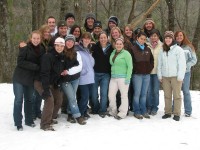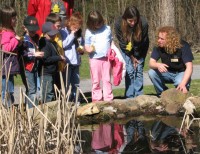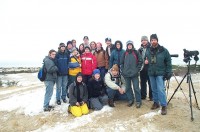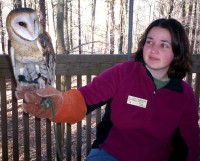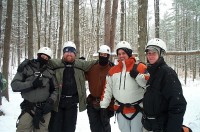Spring 2011 Discovery “Block” Semester Information Session:
Tuesday, November 2nd, 4:15—5:15 p.m., 808 Ford Building
At Shaver’s Creek Environmental Center, we believe that an integrated, experiential-based semester can facilitate powerful paths to self-discovery. Penn State undergraduates are invited to come to Ford Building tonight to learn more about whether this 19-credit “block” of courses might be right for you.
Shaver’s Creek Environmental Center offers Penn State students an outstanding opportunity to immerse themselves in the outdoors and the field of environmental education and interpretation. The courses are integrated in a way that allows students to go into the field and visit other outdoor locations and centers without disrupting their other courses. The students work side-by-side with Shaver’s Creek’s experienced outdoor educators and naturalists to gain a holistic view and set of skills in the environmental field.
Please note that while the courses are mostly RPTM-listed, students from other disciplines are encouraged to enroll. Students in ERM and AEE may be able to count these courses towards the core-requirements of your degree as well. In the past, Block has also welcomed students from Integrative Arts, Biology, Science Education, Wildlife and Fisheries Science, and other programs!
The Discovery Semester includes the following seven courses, taught as a collaborative unit on Tuesday/Thursday and selected days throughout the semester, primarily on-site at Shaver’s Creek:
RPTM 230 Teambuilding Facilitation (3 credits) Learn teambuilding and facilitation skills to increase your understanding of leadership qualities and group dynamics.
Contact Doug Wentzel (djw105@psu.edu) for more information and to enroll in the semester. You can also visit http://www.ShaversCreek.org to learn more about Shaver’s Creek and the programs and Penn State courses we offer.

